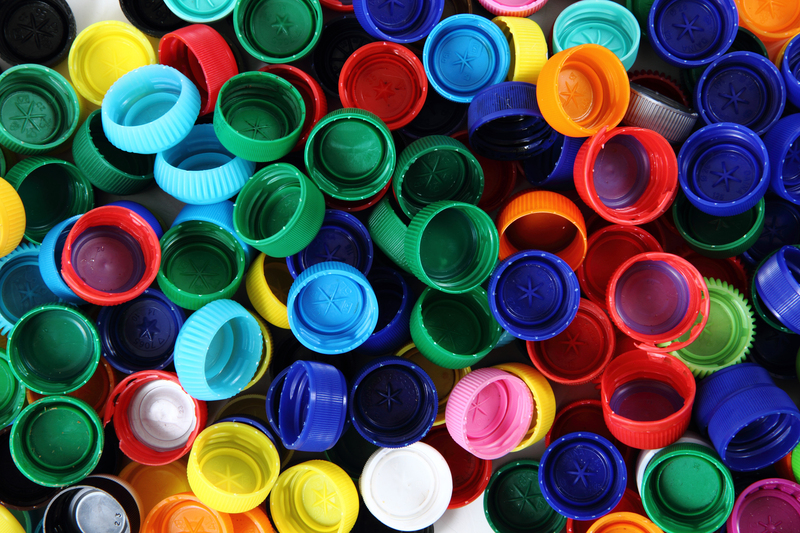Step Up School Recycling Initiatives with Innovative Plans
Modern schools are more than just centers of learning. They're incubators for positive change, empowering students to create sustainable futures. With the urgency of climate change and dwindling natural resources, it is crucial to step up school recycling initiatives using innovative plans. This comprehensive guide offers actionable ideas, proven strategies, and inspiration for transforming your school's recycling program into a leading example of environmental stewardship.
Why Should Schools Enhance Their Recycling Programs?
- Educational Impact: Promotes environmental literacy among students.
- Behavioral Change: Encourages lifelong eco-friendly habits.
- Resource Conservation: Reduces the strain on natural resources and landfills.
- Community Engagement: Connects schools with local organizations and inspires collective action.
- Cost Savings: Efficient waste management can lower disposal costs.
Recycling in schools is about so much more than tossing paper in the blue bin--it's about inspiring the next generation of environmental leaders.

Innovative Plans to Boost School Recycling Initiatives
1. Establish a Green Team
Build a diverse committee of students, teachers, administrators, janitorial staff, and even parents. This Green Team can analyze current recycling habits, identify shortcomings, and brainstorm actionable improvements.
- Assign roles: Research, communication, collecting, and auditing waste.
- Set goals: Quantifiable metrics such as recycling rates or landfill diversion percentages.
- Celebrate successes to keep motivation high.
2. Conduct Waste Audits--Make Data-Driven Changes
Waste audits are a powerful way to understand precisely what ends up in your school's trash bins. Enlist student volunteers and track every type of waste for a week. Categorize items and discover the most discarded materials.
- Track recyclable vs. non-recyclable items.
- Identify contamination issues (e.g., food-soiled paper).
- Discover surprising sources of unnecessary waste, such as plastic utensils or single-serve snacks.
Use the findings to tailor your school recycling initiative for maximum effectiveness.
3. Revolutionize Recycling Infrastructure
Upgrade your collection bins and make them unmistakably clear. Invest in color-coded and clearly labeled bins that separate paper, plastics, metals, organics, and landfill items. Consider illustrations or multilingual signage for inclusivity.
- Strategic placement: High-traffic zones such as cafeterias, hallways, and entrances.
- Add "zero waste stations" where multiple streams are handled at once.
4. Incorporate Technology and Smart Solutions
Today's most innovative school recycling initiatives harness technology:
- Smart Bins: Some bins use sensors to alert when full or identify improper sorting.
- Recycling Apps: Use apps to track progress, educate students, and provide recycling tips.
- Digital Signage: Use interactive screens near recycling stations to engage and inform.
Gamify recycling with leaderboards or point systems to foster a fun, competitive spirit.
5. Integrate Recycling Into the Curriculum
Make sustainability part of the learning journey, not just an add-on. Curriculum-linked activities make recycling relevant and real:
- Study the environmental impact of waste in science class.
- Track recycling data and analyze trends in math lessons.
- Debate policies on waste management in social studies.
- Write persuasive essays on why recycling matters in English.
Student-led presentations or art projects using recycled materials can inspire peers across all grades.
6. Partnership and Community Involvement
Schools shouldn't act alone. Collaborate with:
- Local recycling companies: Invite guest speakers or arrange facility tours.
- Municipal governments: Tap into grants and municipal recycling events.
- Nonprofits and businesses: Organize e-waste collections or clothing drives.
Community involvement not only enhances resources, but also makes your school recycling initiative visible and influential beyond campus.
7. Celebrate and Amplify Achievements
Public recognition keeps momentum alive. Try:
- Monthly newsletters highlighting recycling "heroes."
- Displaying progress charts in common areas.
- Hosting annual "Eco Fairs" or recycling competitions between classes or grades.
- Recognizing staff and custodians who excel in supporting recycling efforts.
8. Tackle Contamination Head-On
One of the biggest obstacles for effective school recycling programs is contamination--when non-recyclables end up in the bin.
- Regular training: Teach students and staff what goes where.
- Empower "Recycling Monitors" to provide friendly reminders.
- Use clear visuals: posters, bin stickers, and quick reference guides.
Reducing contamination boosts both the quality and the value of collected recyclables.
Creative Ways to Step Up School Recycling Initiatives
Start a Upcycling Challenge
Upcycling goes beyond ordinary recycling by transforming waste materials into valuable, creative items. Host competitions for art, furniture, or fashion using discarded objects. Let students present their projects at a school eco-fair.
Host Themed Recycling Weeks
- Plastic-Free Friday: Encourage reusable bottles and containers.
- Paperless Day: Go digital for lessons and letters home.
- Compost Awareness: Introduce food scrap bins in cafeterias.
These themed events keep recycling initiatives fresh and fun while fostering school spirit and environmental awareness.
Introduce Repair Cafes
Invite parents, local artisans, or vocational classes to demonstrate how easy it is to repair broken items instead of tossing them away. Set up "fix-it" workshops for electronics, clothing, or bikes.
Repair culture not only cuts waste but also teaches valuable skills.
Track and Publicize Progress
Transparency motivates. Share updates at assemblies or via school websites:
- How many pounds of material diverted from landfill each month.
- Environmental impact--saved trees, energy, or emissions avoided.
- Recognition of outstanding recycling leaders.
Seeing real-world results of collective effort deepens commitment and pride in your school's sustainability journey.
Empower Students as Eco Ambassadors
Let students lead! Appoint eco ambassadors or green captains at each grade or homeroom. Responsibilities can include:
- Monitoring bins for proper usage and contamination.
- Coordinating recycling drives and assemblies.
- Delivering educational sessions to younger peers.
Student leadership ensures recycling remains a visible, respected part of school life.
Addressing Common Barriers in School Recycling Programs
Lack of Awareness
- Solution: Kick off with a school-wide assembly and ongoing announcements. Use posters and digital signage to reinforce habits.
Insufficient Infrastructure
- Solution: Seek funding through grants, PTA support, or community partners for bins, signs, and composters.
Motivation Drops Over Time
- Solution: Set new goals each term, offer rewards, and rotate leadership roles to keep engagement fresh.
Confusion Over What Can Be Recycled
- Solution: Develop easy-to-understand visuals and offer quick training every semester for students and staff.
Limited Staff Buy-in
- Solution: Highlight how effective recycling makes staff jobs easier, and involve all school departments from the outset.
Measuring the Success of Your School Recycling Initiative
- Track collected materials: Weigh recycling and landfill bins regularly.
- Survey students and staff: Assess knowledge and satisfaction levels.
- Monitor contamination rates: Lower contamination means better recycling quality.
- Calculate environmental benefits: Tools and online calculators can translate volumes recycled into energy and resources saved.
Use these metrics for continual improvement and as motivation for the whole school community.

Long-Term Vision: Embedding Sustainability in School Culture
The ultimate hallmark of a successful school recycling initiative is when sustainability becomes second nature. Achieve this by:
- Maintaining year-round recycling activities--not just "green weeks."
- Connecting with the larger community on regional sustainability projects.
- Adapting to new materials and innovations in recycling technology.
Embed eco-responsibility into your mission statement and celebrate it in school events, honors, and ongoing learning.
Conclusion: Be a Leader in Innovative School Recycling
It's never been more vital--or more possible--to step up school recycling initiatives with innovative plans. By adopting creative strategies, forming strong partnerships, leveraging technology, and empowering students, schools can become standout examples of green leadership.
Start today by assessing your current practices, assembling a passionate team, and choosing a few bold new initiatives. With determination and creativity, your school can instill eco-friendly habits that last a lifetime--and inspire your wider community to do the same.
Together, let's make every school a champion of sustainability!